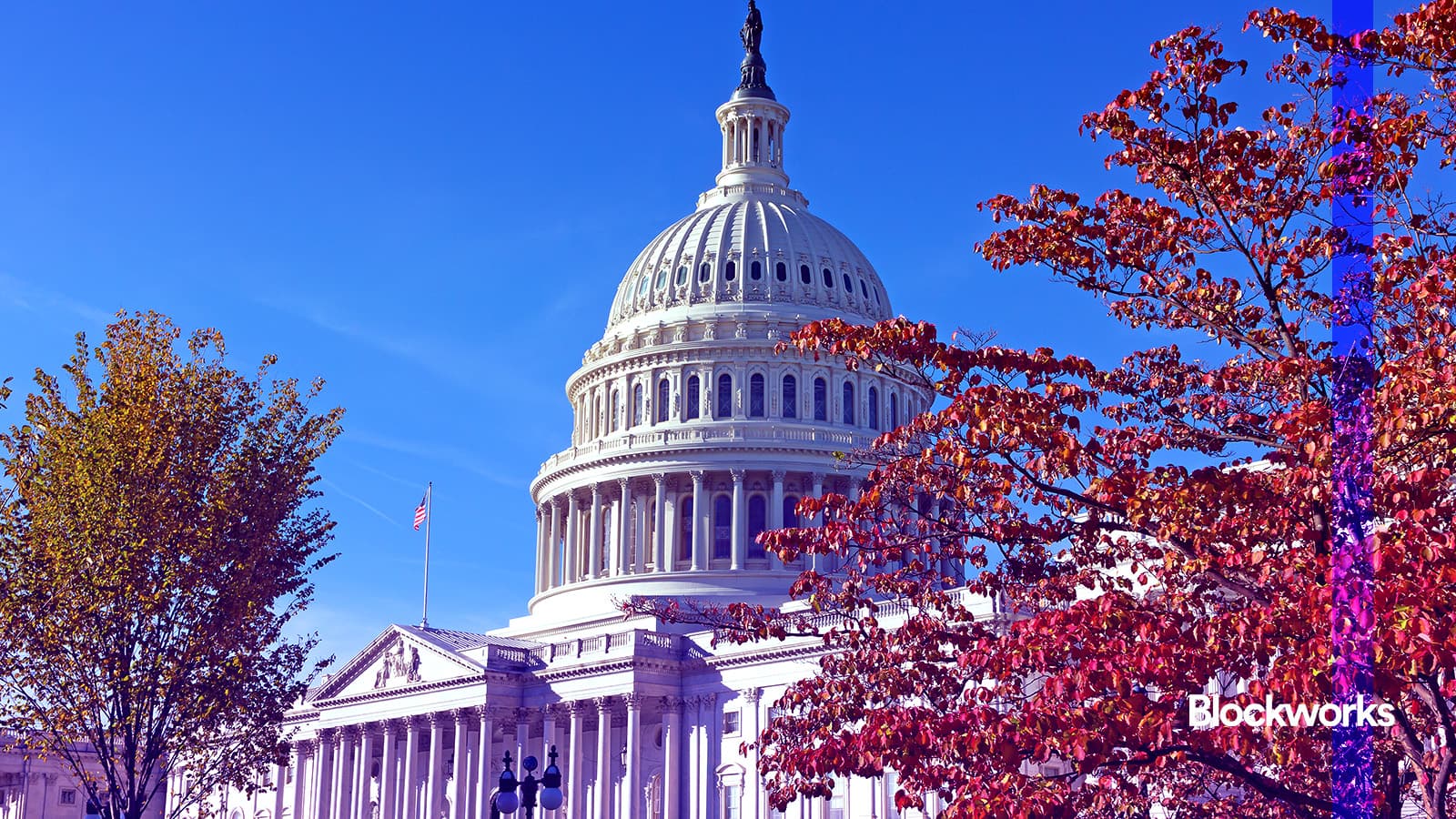Industries, Senators clash over crypto market structure legislation
Big banks weren’t happy with a key provision of the GENIUS Act, and want lawmakers to right the wrong in the crypto market structure bill.

Andrei Medvedev/Shutterstock and Adobe modified by Blockworks
The White House wants Congress to move quickly on cryptocurrency market structure legislation. When it comes to ironing out the details, though, lawmakers and industry stakeholders have their work cut out for them.
Speaking at an industry event in Washington, D.C. Thursday, Patrick Witt — the newly-appointed executive director of the President’s Council of Advisors on Digital Assets — said getting the bill over the finish line is a top priority.
Senate Republicans last week unveiled an updated draft of their crypto market structure bill, the Responsible Financial Innovation Act of 2025. The legislation is notably different from the CLARITY Act, which the House passed in July with bipartisan support.
This week, a group of historically crypto-friendly Senate Democrats released their own crypto market structure wishlist. The industry is still waiting for a market structure draft from the Senate Agriculture Committee, which needs to be released before lawmakers can move on to marking up the legislation.
Industry members are generally happy with the Republican draft, according to three sources familiar with lobbying efforts. Some companies might not be as satisfied with the Agriculture Committee’s draft, though, depending on what it says about exchange registration requirements, one source added.
The Democrats’ framework, released on Tuesday, aligns in many ways with the Republican draft, but includes a significant update to stablecoin regulation.
The GENIUS Act, which became law in July, stipulates that no stablecoin issuers can offer any yield or interest on holdings. In their proposal, Senate Democrats take this a step further, suggesting a “prohibition on interest or yield paid by stablecoin issuers, including indirectly or through affiliates.”
The language of the GENIUS Act prohibits issues from offering yields directly, but does not block exchanges, or “affiliates,” from doing so.
“Through affiliates” is a term big banks wanted included in the GENIUS Act, and even after it was signed into law, they haven’t stopped lobbying the issue. In an August statement, the Bank Policy Institute urged lawmakers to use the market structure bill to “close the loophole” created by the GENIUS Act.
The crypto industry disagrees, arguing that the GENIUS Act fairly permits exchanges and affiliates to pay interest to holders. Only giving banks such allowances “tilts the playing field” and limits consumer options, crypto lobbying groups wrote in response to the Bank Policy Institute’s statement.
Crypto exchange Coinbase, which currently offers a USDC rewards program on Coinbase Wallet holdings, is particularly concerned with the language in the Democrats’ framework — and with the banking industry’s efforts to re-litigate parts of the GENIUS Act.
“I expect that the focus of Chairman Scott and Chairman Boozman is going to be on market structure, not revisiting previous legislation,” Coinbase Chief Policy Officer Faryar Shirzad said.
“I feel confident that we’ll end up in the right place on the other end of this, but it’ll require a fair amount of work,” he added.
Back in March, when GENIUS Act negotiations were underway, Coinbase CEO Brian Armstrong emphasized the need for allowing interest payments on stablecoins.
“We can choose to level the playing field and ensure these laws pave a way for all regulated stablecoins to deliver interest directly to consumers, the same way a savings or checking account can,” Armstrong wrote in a post on X.
The stakes are significant, as demonstrated by the size of the stablecoin market today. The current stablecoin market capitalization is $251 billion, according to data compiled by Blockworks Research. Tether’s USDT leads with $170 billion in circulated assets, followed by Circle’s USDC with $72.3 billion.
Coinbase has a revenue-sharing agreement with Circle, granting the exchange 50% of reserve interest income.
Get the news in your inbox. Explore Blockworks newsletters:
- The Breakdown: Decoding crypto and the markets. Daily.
- 0xResearch: Alpha in your inbox. Think like an analyst.






